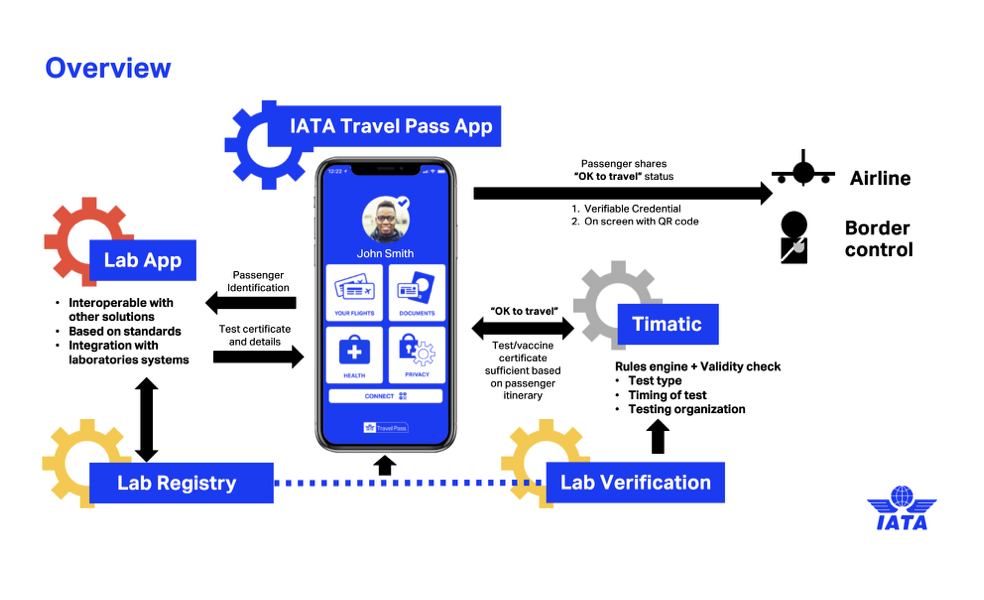Identity Review | Global Tech Think Tank
Keep up with the digital identity landscape.
Anyone who has tried to fly internationally during the COVID-19 pandemic knows that it is a near-impossible task. You have to navigate poorly designed airline and government websites to determine the testing requirements for entry. You have to know which type of test is required for your flight (PCR, LAMP, antigen, spectroscopic, or another kind). Finally, even after following all the requirements, you need to figure out how to present your test results in a format that airlines and governments will accept.
Sound headache-inducing? If that was not bad enough, remember that each airline and government has their own rules and requirements.
The International Air Transport Association (IATA) has released a new solution that aims to streamline the international travel process for passengers during the COVID-19 pandemic. IATA has announced the IATA Travel Pass, a “global and standardized solutions to validate and authenticate all country regulations regarding COVID-19 passenger travel requirements.”
In its announcement, IATA described the complicated workflow process between multiple parties that is required for passengers to receive approval for international travel:
IATA aims to simplify this process with a “contactless travel app” that serves as the system of record for all COVID-19 information. The app will integrate with the registry of health requirements and of testing and vaccination centers. That means passengers will know exactly where to go to find accurate information on travel requirements and testing centers at their departure and arrival locations. IATA also includes an app for labs and test centers, enabling them to send test results or vaccine certificates directly to passengers’ apps. Of course, passengers will use this app to board their flights and verify that they meet all the requirements.

How IATA Travel Pass App streamlines the COVID-19 travel process (Source: IATA.org)
IATA is one of the first officially announced COVID-19 passports, and is planning to launch soon with Etihad and Emirates airlines. However, it certainly will not be the last COVID-19 passport. The UK is considering QR codes for those who are vaccinated, while Denmark and Sweden are planning to issue vaccine passports. As Mohammad Al Bulooki, COO of Etihad Aviation Group, put it in an interview with The Hong Kong Tatler, “COVID-19 tests and vaccinations will be key to get the world flying again.”
The product currently focuses on navigating the COVID-19 pandemic, but it is hard to not wonder if health passports will remain prominent in the post-COVID world. New variants of the virus continue to spread globally and each country will navigate the vaccination process on a different time schedule. Further, passengers may keep the health-conscious habits they developed during the pandemic and demand that fellow travelers be deemed healthy before flying.
The next few months will tell us a lot about whether COVID-19 has ushered in a new era of airport safety requirements. As such, Identity Review will be closely following the release of and public reaction to the IATA passport and its peer passports. If airlines successfully implement new disease passports designed to reduce the spread of airborne illness, the travel process could fundamentally change, similar to how the industry installed increased security protocols following the 9/11 terrorist attacks.
ABOUT THE WRITER
Quinn Barry is a Tech Innovation Fellow from Stanford University covering innovations in digital privacy across finance and government.
Contact Quinn Barry at quinn@identityreview.com.
Do you have information to share with Identity Review? Email us at press@identityreview.com.